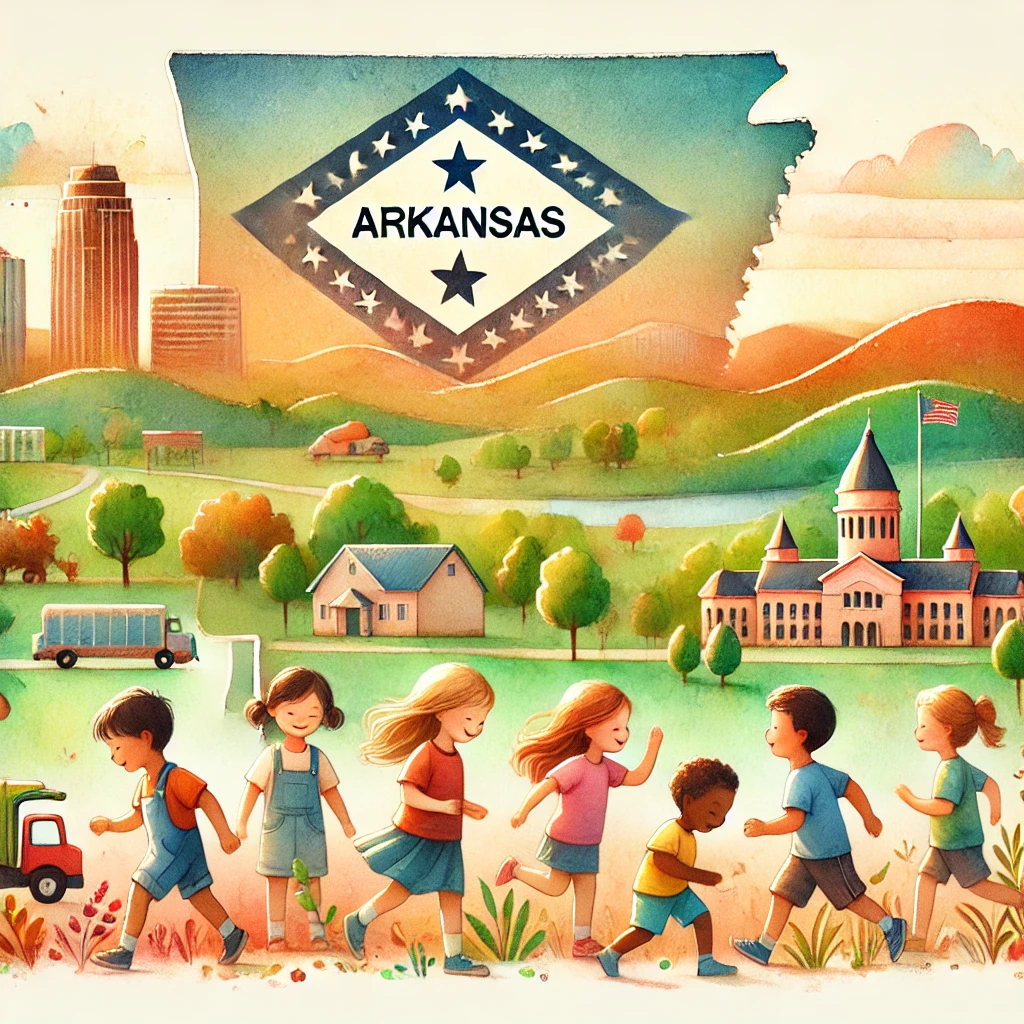Most Affordable Early Childhood Education Degrees in Arizona

Find your perfect college degree
In this article, we will be covering...
As aspiring educators pursue their passion for shaping young minds, the financial aspect of higher education can present a significant challenge. However, Arizona offers a range of affordable options that allow individuals to achieve their goals without breaking the bank.
Accessible Community College Programs
Arizona’s community college system provides a solid foundation for early childhood education studies. Schools like Maricopa Community Colleges and Pima Community College offer associate’s degree programs with tuition rates averaging around $2,100 per year. These accessible, high-quality programs lay the groundwork for a seamless transition to four-year universities.
By starting at a community college, students can significantly reduce the overall cost of their education. The lower tuition fees, combined with the option to live at home and work part-time, create a financially viable pathway for many aspiring educators. Additionally, these institutions often maintain strong partnerships with local universities, facilitating a smooth transfer process and ensuring that credits earned at the community college level are fully recognized.
The community college experience also fosters a nurturing environment that supports students’ personal and academic growth. Academic advisors guide learners through the complexities of course selection and financial aid, while peer-to-peer connections build a sense of belonging. This holistic approach helps students navigate the challenges of balancing education, work, and life responsibilities, ultimately setting them up for success in their future academic and professional endeavors.
Affordable In-State University Options
For those seeking a bachelor’s degree, Arizona’s public universities deliver competitive in-state tuition rates. Arizona State University, Northern Arizona University, and the University of Arizona all maintain early childhood education programs with annual costs ranging from $11,000 to $12,000 for residents. These institutions prioritize practical experience and community engagement, preparing graduates to excel in the classroom.
The in-state tuition advantage provides significant financial relief for Arizona residents, allowing them to pursue their educational goals without the added burden of out-of-state costs. Furthermore, these universities often offer a range of scholarship and financial aid opportunities to further support students.
In addition to affordability, Arizona’s public universities are recognized for the quality of their early childhood education programs. Accredited by respected organizations like the Council for the Accreditation of Educator Preparation (CAEP), these institutions ensure that graduates possess the necessary knowledge, skills, and practical experience to thrive in the field.
By opting for an in-state university, aspiring educators can maintain valuable connections to their local communities, leveraging internships, networking opportunities, and post-graduation employment prospects. This holistic approach nurtures both the intellectual and emotional development of future teachers, empowering them to make a lasting impact on the lives of young learners.
Affordable Early Childhood Education Programs in Arizona
1. Arizona State University (ASU)
- Tuition: $11,300 per year (in-state)
- Accreditations: CAEP, NAEYC
- Program Highlights: Hands-on learning, community engagement, strong focus on child development
2. Northern Arizona University (NAU)
- Tuition: $11,500 per year (in-state)
- Accreditations: CAEP, NAEYC
- Program Highlights: Emphasis on experiential learning, environmental education, collaborative partnerships
3. University of Arizona (UA)
- Tuition: $12,400 per year (in-state)
- Accreditations: CAEP, NAEYC
- Program Highlights: Diverse curriculum, research-based teaching methods, strong community ties
4. Maricopa Community Colleges
- Tuition: $2,100 per year
- Accreditations: CAEP, NAEYC
- Program Highlights: Affordable pathway to four-year degrees, flexible scheduling, personalized advising
5. Pima Community College
- Tuition: $2,100 per year
- Accreditations: CAEP, NAEYC
- Program Highlights: Seamless transfer opportunities, hands-on learning experiences, supportive learning environment
Financial Aid and Scholarship Opportunities
To further alleviate the financial burden, Arizona offers a variety of targeted scholarships and grants. These resources not only ease the cost of education but also reflect the state’s commitment to supporting and nurturing the next generation of early childhood educators.
Arizona Teacher Academy Scholarship
The Arizona Teacher Academy Scholarship stands out as a remarkable opportunity for aspiring educators. This program provides full tuition coverage for students who commit to teaching in Arizona schools after graduation. By addressing the financial barriers, the scholarship allows individuals to focus on their studies and the development of their teaching skills, rather than being hindered by concerns about tuition costs.
First Things First Scholarship
Another significant financial aid resource is the First Things First Scholarship, funded by the Arizona Early Childhood Development and Health Board. This scholarship is designed to assist students facing financial hardships in their pursuit of early childhood education degrees. By providing this support, the state demonstrates its commitment to creating an inclusive and accessible educational landscape, where individuals from diverse backgrounds can fulfill their aspirations.
Institutional and Community-Based Scholarships
In addition to state-level scholarships, Arizona’s universities and local community organizations offer a range of additional financial aid opportunities. These scholarships are often tailored to specific academic programs, geographic regions, or student demographics, further enhancing the accessibility of early childhood education degrees.
Flexible Pathways and Delivery Formats
To accommodate the diverse needs and schedules of aspiring educators, Arizona universities offer a range of flexible program options, including online and accelerated pathways.
Online Early Childhood Education Programs
For students seeking additional flexibility, Arizona universities provide online early childhood education programs. These formats allow learners to balance academic pursuits with personal responsibilities, reducing the overall time and cost required to earn a degree.
The online delivery model offers several advantages. First, it eliminates the need for commuting and on-campus housing, resulting in significant cost savings for students. Additionally, the asynchronous nature of many online courses enables learners to study at their own pace, fitting their educational journey around work, family, and other commitments.
Accelerated Degree Options
In addition to online programs, Arizona universities offer accelerated pathways for early childhood education degrees. These condensed curricula allow students to complete their studies in a shorter timeframe, typically within 12 to 24 months, significantly reducing the overall cost of their education.
The accelerated format demands a higher level of commitment and dedication from students, as they navigate an intense academic schedule. However, this approach also enables them to enter the workforce sooner, potentially earning a higher income and paying off any outstanding debts more quickly.
Leveraging Transfer Agreements
Arizona’s educational landscape is further enhanced by the state’s robust credit transfer policies, which facilitate a seamless transition from community colleges to four-year universities.
Articulation Agreements
The Arizona Transfer Pathways guide serves as a testament to the state’s commitment to educational accessibility. This framework ensures that courses completed at community colleges align with university curricula, allowing students to transfer a block of 35 general education credits.
Arizona General Education Curriculum (AGEC)
The Arizona General Education Curriculum (AGEC) plays a crucial role in facilitating credit transfers. This comprehensive framework ensures that general education courses completed at any AGEC-participating institution, including community colleges, are fully recognized and accepted by public universities in the state.
Ongoing Professional Development Opportunities
In the field of early childhood education, learning and growth are continuous processes. Arizona’s educational landscape offers a range of affordable professional development resources to support the ongoing growth and development of educators.
Accessible Workshops and Seminars
Arizona’s community colleges, universities, and professional associations often host workshops, seminars, and webinars that address the evolving needs and best practices in early childhood education. These affordable learning opportunities allow educators to stay up-to-date with the latest pedagogical approaches, curriculum design, and child development research.
Community-Based Learning Hubs
Arizona’s libraries and community centers often serve as hubs for affordable professional development. These institutions provide access to educational materials, host informative workshops, and offer guidance from knowledgeable staff members. This community-based approach to ongoing learning fosters a sense of camaraderie and shared purpose among educators, as they engage in collaborative discussions and share best practices.
State-Sponsored Grant Opportunities
To further support the professional development of early childhood educators, Arizona offers grant programs that provide funding for continued learning and skill enhancement. These state-sponsored initiatives recognize the importance of empowering educators to stay current with the latest research and innovative practices in the field.
Pathways to Rewarding Careers
Pursuing an early childhood education degree in Arizona opens the door to a range of rewarding career opportunities, each with the potential to make a lasting impact on the lives of young children and their families.
Preschool Teacher
Preschool teachers play a pivotal role in laying the foundation for a child’s academic and social-emotional development. In Arizona, preschool teachers can expect to earn an average salary of $28,000 to $32,000 per year, depending on factors such as location, experience, and educational qualifications.
Childcare Center Director
Climbing the career ladder, individuals can aspire to become childcare center directors, overseeing the operations and management of early childhood education facilities. These roles typically come with an average salary range of $40,000 to $55,000 per year in Arizona.
Special Education Teacher
For those passionate about supporting children with diverse needs, the path of a special education teacher presents an impactful career option. In Arizona, special education teachers can expect to earn between $36,000 and $50,000 per year.
Kindergarten Teacher
Kindergarten teachers, with salaries ranging from $35,000 to $48,000 in Arizona, play a pivotal role in introducing children to the wonders of formal education. They strive to build curiosity, confidence, and a love for learning, setting young students on a path of academic and personal growth.
Early Childhood Education Consultant
For those seeking a more specialized career path, the role of an early childhood education consultant presents an opportunity to share expertise and influence educational practices. In Arizona, these professionals can earn between $45,000 and $65,000 per year.
Conclusion: Embracing the Journey
Pursuing an early childhood education degree in Arizona is a journey filled with both challenges and immense rewards. By leveraging the state’s accessible community college programs, affordable in-state university options, and a wealth of financial aid resources, aspiring educators can overcome the financial barriers that often deter individuals from entering the field.
The flexibility and adaptability of Arizona’s educational landscape further enhance the accessibility of these degree programs. Online and accelerated pathways cater to the diverse needs and lifestyles of students, empowering them to balance their academic aspirations with personal responsibilities.
Moreover, Arizona’s commitment to supporting the professional growth and development of educators is evident through its robust credit transfer policies, collaborative articulation agreements, and a variety of affordable learning opportunities. This holistic approach ensures that early childhood educators can continuously enhance their skills and knowledge, positively impacting the children they serve.
By embracing the affordable and flexible educational pathways available in Arizona, aspiring educators can focus on nurturing their passion, honing their teaching skills, and making a lasting impact on the lives of young learners. This transformative journey not only enriches the lives of children but also empowers the educators themselves, fostering personal and professional growth that extends far beyond the classroom walls.




